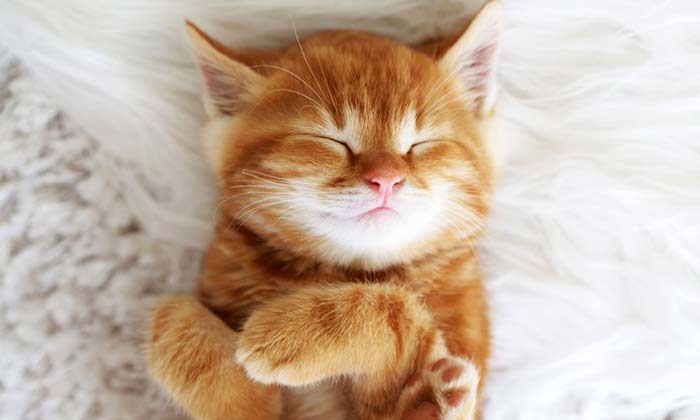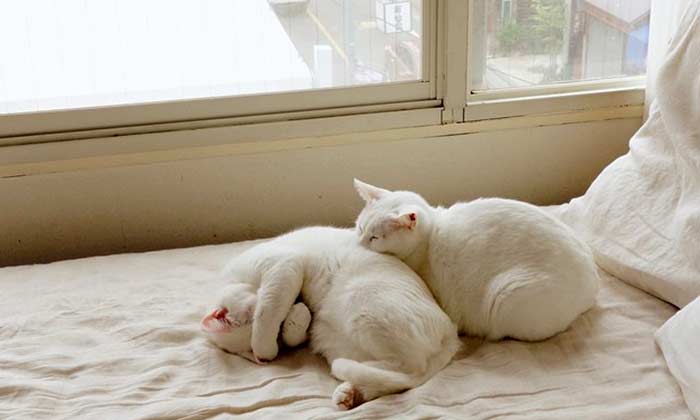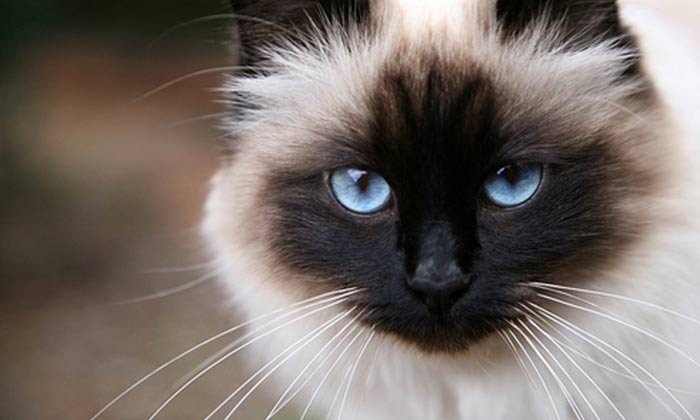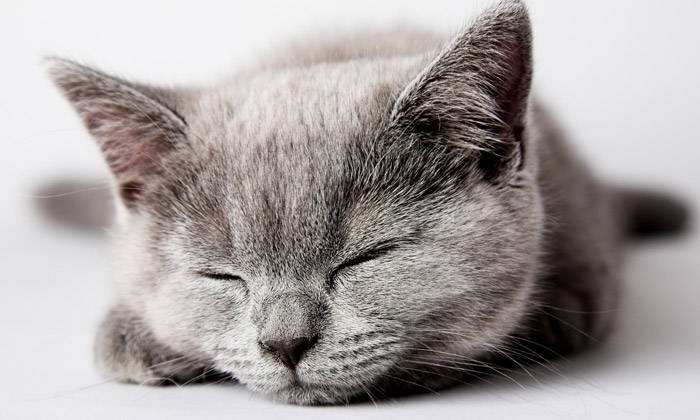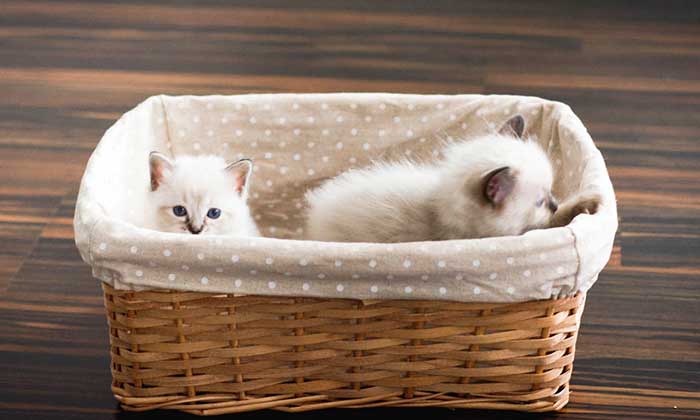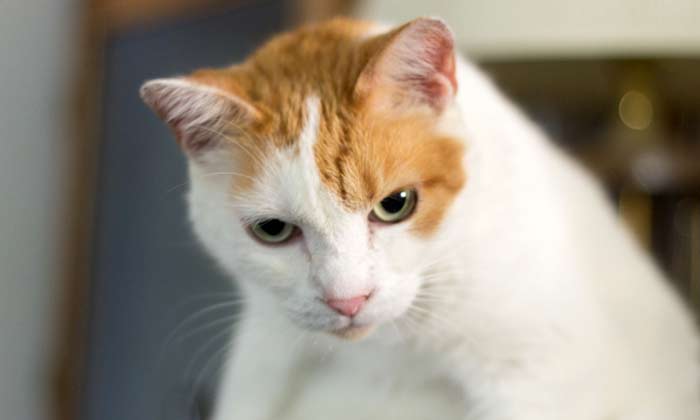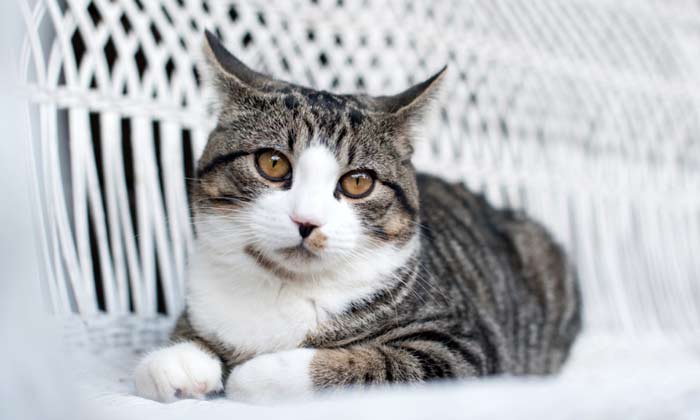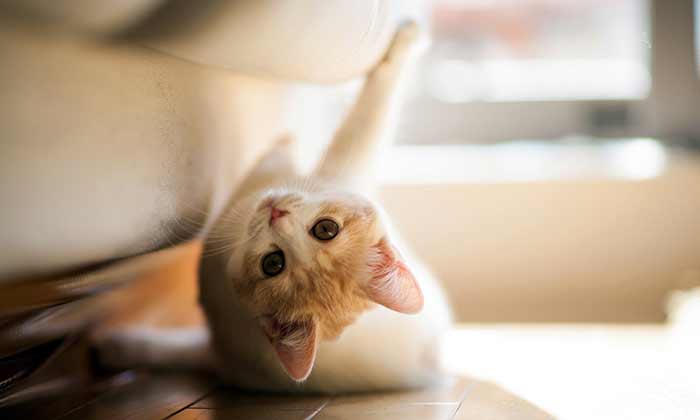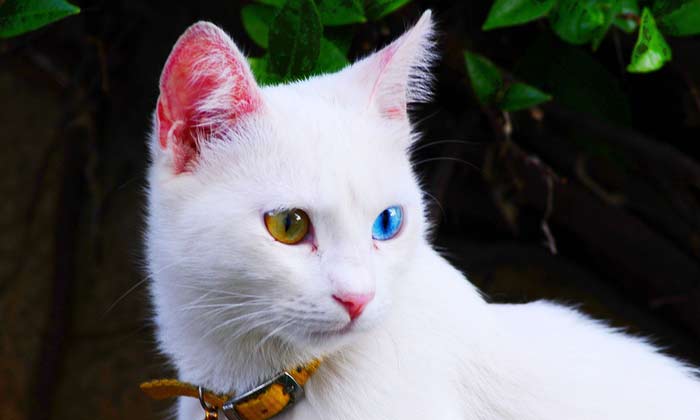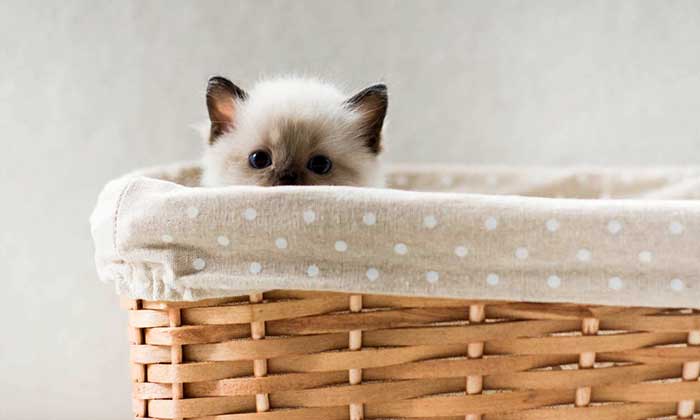How Long Do Cats Live? Cat Lifespan Explained
How long do cats live? It is often said that cats have nine lives, although this incredible longevity is largely just a myth based on folklore. It is popular to report on cats that have led particularly long lives, with countless stories and profiles online about cats living to their 20s and 30s. The Daily Mail, an English newspaper, wrote a piece on a cat aged 24, for example, while the Guinness World Record holding-feline lived to a whopping 38 years old. But in reality, how long do cats live? We are often very pleased and lucky if our feline friend lives to be a teenager, which is the equivalent of being 70+ years old in human years.
The rate at which cats age changes as they get older. In their early years, they age faster – by the time a cat is two years old it is the human equivalent of 24 years old. After this age, cats gain five to eight human years for every cat year they complete, gaining less human years for each cat year they finish. This and a wealth of other factors means it is very hard to predict how long your cat will live, but I have put together some advice about how long you can expect each cat breed and type of cat to live, and how you can expand your cat’s life!
How Long Do Cats Live?
Life Span for Indoor Living
So, how long do cats live? For cats that live completely indoors, the lack of stress and danger means they can be expected to live for 12 to 15 years.

Indoor cats can be expected to live for 12 to 15 years
Being safe and warm indoors and being fed regular meals can ensure that indoor cats get the nutrients and shelter they need to live comfortably and healthily; having an owner happy to groom fur and trim claws further prevent dirt and infections from affecting a cat’s life span.
Further, regular vet check-ups and vaccinations keep indoor cats safe from diseases that end a cat’s life sooner; regular play and space to move around provide the exercise that cat’s need to keep their minds and bodies active and supple.
Finally, spaying or neutering your animals prevents birthing risks for female cats. The lack of these and other dangers means indoor cats have relatively little stress in their lives and have very healthy and protected lives, hence the long life span.
Outdoor Life
On the other hand, how long do cats live in the open nature? Outdoor cats have a much more dismal life expectancy of just 2 to 5 years. Cats which live solely outside are either feral for their entire lives or are abandoned pets of former owners. These cats face extreme stress in their everyday lives, as they must always hunt or scavenge for food while protecting themselves from other cats, predators, and dangers such as traffic and other unkind humans. The lack of shelter available to cats living outside further harms a cat’s chances of survival, while the lack of medical care during periods of disease or birth can cause problems. Plenty of dangers exists for cats on the street. Thus they cannot be expected to live long lives.

Outdoor cats have a life expectancy of just 2 to 5 years.
For those cats fortunate to be loved and cared for by a good owner, maintaining a healthy diet and lifestyle ensures they stay fit, and regular vet appointments and exams can ensure that any problems are caught and treated early.
Spaying or neutering cats increase their life expectancy, for example by reducing the likelihood of prostate problems and testicular cancer in male cats, and breast cancer, ovarian cysts and uterine infections in female cats. It also avoids excessive breeding between animals and related overpopulation issues. One thing to bear in mind, though, is that spaying and neutering can lead to your cat becoming calmer overall. Thus it is less likely to engage in physical activity and burns fewer calories. Weight and obesity problems can occur in these cats, issues which ultimately lead to more serious diseases such as diabetes and liver disease.
Vaccinations are also important for cats, as without them they can catch and spread dangerous diseases. Even indoor cats can be at risk as human owners track diseases in and out of the house. Thus it is important to vaccinate all cats to ensure they enjoy a long and healthy life.
Nine Lives for all Breeds?
Different breeds of cats age at different rates; the same difference is present between pure-breed cats and more common mixed breed cats. For example, purebred Siamese cats are considered sexually mature up to 6 months earlier in their lives than non-purebred cats, at six months and 10-12 months respectively. Other breeds can be expected to mature much later – for example, Maine Coons and Persians are only mature when they reach two years old.
The genetics of different breeds also affects the overall lifespan of cats. Siamese cats live for 15 years, while some Persians can survive for approximately 17 years. Across the board, a cat that is nine years old is deemed to be a “senior” cat. At this age, a cat would be about 50 in human years.
Boosts for a longer life
Regular physical exercise can prolong a cat’s life just as it prolongs human life. Physical activity coupled with mentally stimulating aspect keeps a cat healthy in body and mind, which is vital for health in general. Paying attention to other issues such as dental issues is also important, and appropriate dental care for cats can avoid a common oral problem.

Persian cats can survive for approximately 17 years
As already discussed, taking your cat to a vet often will also help you keep on top of any potential problems, something that is particularly useful if you have an older cat for whom medical problems might occur more frequently and need more long-term care. Depending on the overall health and age of your cat, appropriate change to their diets and exercise programs might be required – for example, vitamins can successfully supplement and help older cats.
Ensuring your cat has access to all these health-boosting elements, all within a warm, loving and tranquil home, will help prolong your cat’s life while keeping their quality of life very high and happy.
All of these interventions, plus improving nutrition and veterinary medicine for cats, means that cats are living much longer than they previously have – in many cases cats now live for 15 and even 20 years old. I hope these tips help you to answer for yourself how long do cats live. While many factors will influence these lifespans, we maintain that a critical factor is whether your cat is an indoor or outdoor cat.
Keeping Your Feline Fit and Healthy
You should not only ask yourself “How long do cats live?” but also how you can improve their lifespan. I list here a huge range of tips and interventions you can use to help prolong your cat’s life and ensure that it is the most comfortable and happy life possible.
- Observation – the role of a cat owner is to keep an eye on your cat and notice any little alterations in the cat’s behavior or overall attitude. A mini-physical exam, carried out once a week, can help you to do this (ask your vet or another cat expert if you do not know what to look for in such an exam).
- Any other changes to your cat’s routine, including changes in their breathing, fur, water intake and output, appetite, toilet and grooming habits and physical energy and abilities, along with any new lumps or coughs are important to notice and check up on, as these can be signs of deeper problems for your cat.
- Ensuring you cat is fully vaccinated is vital.
- Taking your cat to the vet regularly, and asking for a full physical exam, will help catch other more subtle problems.
- Providing your cat with a balanced and healthy diet, appropriate to its age, will improve their health.
- Monitoring your cat’s weight, and adjusting food and exercise accordingly, will keep your cat healthy and lively.
- Exercise, through moderate playtime, should be encouraged and should be interactive with the owner.
- Maintaining a stress-free home for your cat will keep them healthy and happy.
What Happens as Cat Ages?
Aging in cats causes some behavioral and more physical changes which you need to look out for if you ask yourself “How long do cats live?”:
- The feline immune system weakens, and older cats are more prone to disease.
- Older cat skin become thinner and loses elasticity; this and its lower blood circulation makes it more likely to catch an infection.
- Cats groom themselves less as they age, causing hair matting, bad skin odor and cleanliness, and inflammation to occur more frequently in older cats.

Eyesight problems are more common among older cats
- Claws become thicker and more overgrown as cats age, thus need to be clipped more often to avoid painful breakages.
- Cats lose their sense of hearing as they age.
- Eyesight problems are more common among older cats – the eye lens becomes hazier in most cats, and while this is not often a big problem it can be accompanied by more serious diseases or high blood pressure that more dramatically reduces a cat’s eyesight.
- Diseases of the teeth become more likely in older cats, making eating painful and thus reduces a cat’s appetite.
- Older cats also face weakened senses of smell, further reducing their appetite in some cases. This is a less serious problem than dental problems regarding appetite, though.
- Kidneys in cats work less well as they age, with complete kidney failure being common. The signs of this disease are very varied, however, so can be hard to catch. Monitoring all kidney changes can be vital in preventing and alleviating these problems.
- The joints of cats, as in humans, become worn down over time, and some cats develop arthritis. While this disease rarely totally cripples older cats, they can find it much harder to move around and gain access to litter boxes and food areas if kept in awkward places. Cats with arthritis can find it painful to have their back and tails stroked.
- Other diseases, such as hyperthyroidism, hypertension, diabetes, inflammatory bowel disease and cancer, all occur with more frequency in older cats than younger cats.
- The loss of mental function seen in humans also occurs in cats. Symptoms of senility are similar in both cats and humans: eschewing social interaction, aimless wandering, excessive meowing and disorientation are all signs of a cat with reduced mental capacity.
How long do cats live: Oldest living cat
While the average lifespan of a cat is approximately 9 to 15 years, the oldest cat that is still alive is a Burmese cat living in Melbourne, Australia. Named Kataleena Lady, this cat is currently 35 years old, having been born on the 11th March 1977.
Oldest cat ever
Now that we know how long do cats live, what is the record? At 38 years old when he died in 2005, a cat named Creme Puff from Texas was the longest living cat ever recorded. He was born on 3rd August 1967.
Coming very close to this long life was Puss, born in 1903, who lived until just after his 36th birthday celebrations on 29th November 1939. Another lucky cat was Granpa, a Sphynx adopted from the Human Society in Texas. Full name Granpa Rexs Allen, this cat lived to be 34 years old.
How old is your cat and do you already see signs of aging? Let me know in the comments!



